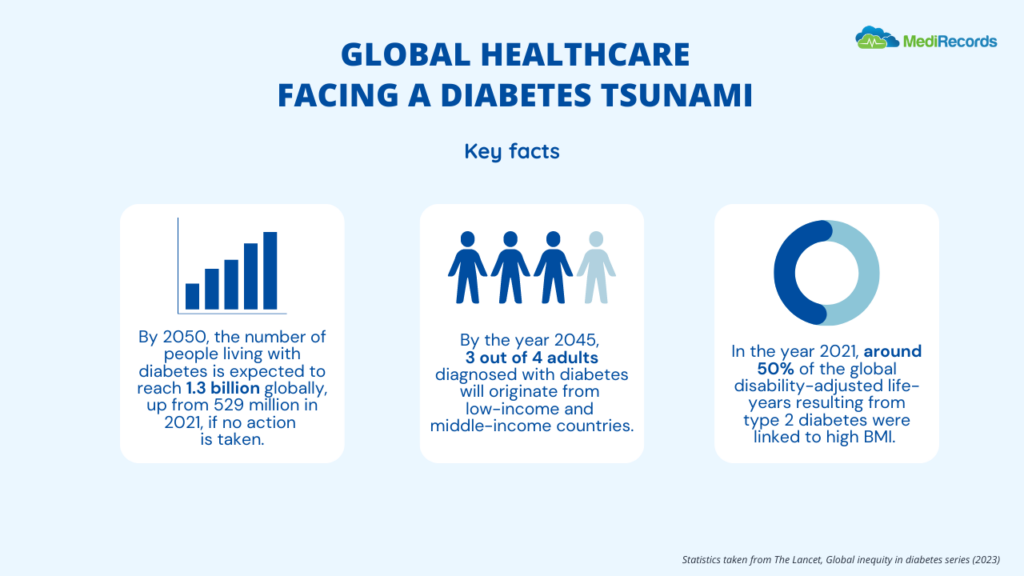August 3, 2023
Global healthcare facing a diabetes tsunami

Diabetes rates are set to soar worldwide, a new study in The Lancet reveals.
By 2050, an “alarming” 1.3 billion people are expected to be living with diabetes, up from 529 million in 2021, if no action is taken, the Institute of Health Metrics and Evaluation at the University of Washington has found.
Lead author Liane Ong warns that the rapid growth of diabetes poses immense challenges to health systems worldwide, as the disease is associated with other severe health conditions like heart disease and stroke.
“The rapid rate at which diabetes is growing is not only alarming but also challenging for every health system in the world,” Dr Ong said.
The surge in diabetes cases can be attributed to rising obesity rates and demographic shifts, with older adults particularly vulnerable.
Funded by the Bill and Melinda Gates Foundation, this study emphasises the necessity for more effective mitigation strategies and an equitable approach to diabetes treatment.
The looming crisis, underscored by a series of Lancet articles, has prompted an editorial in an edition of the journal last month, which argues that “the world has … underestimated the true scale and threat the disease poses”. It calls for a “course correct”.
MediRecords can support patient-centric diabetes care with features including templated assessment forms and care plans, and ePrescribing. New ‘Premium’ features supporting Case Management and Group Appointments are coming soon.
Remote monitoring effective
Previous studies have shown that remote monitoring of diabetic foot ulcer (DFU) reduces the number of visits to the outpatient clinic, but a new study, published this month in The Lancet Regional Health – Europe, has found further benefits.
A randomised controlled trial with 180 participants by a group of French researchers led by Dured Daldari found that remote monitoring of DFU by an expert nurse significantly reduced cumulative hospital days — from 13.4 days (95% CI 9.0–17.8) in the control group to 7.1 days in the intervention group (2.8–11.5).






